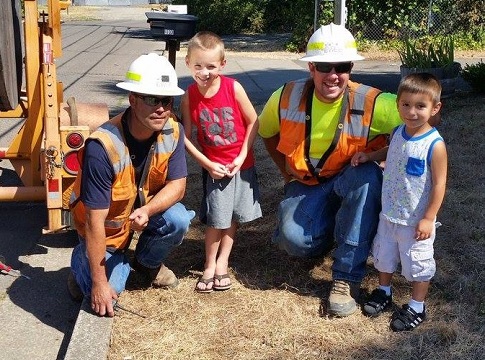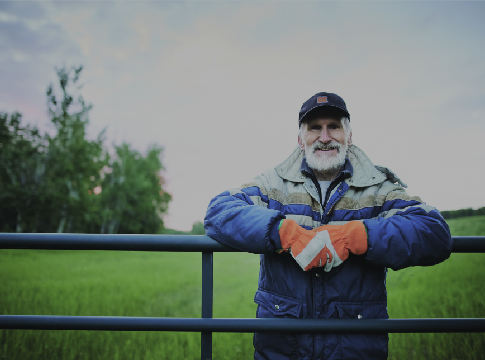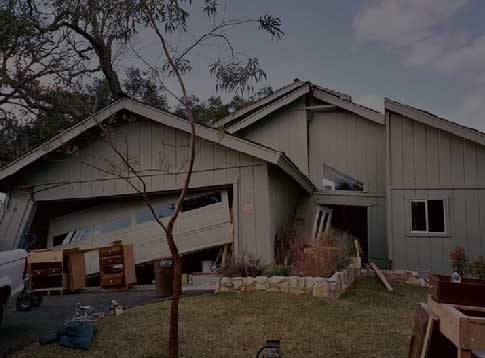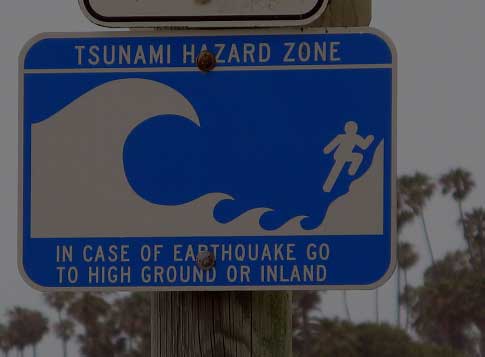Related News
Related News
-
This month, EWEB celebrates 115 years of service Eugene
EWEB celebrates 115 years serving Eugene. As our community grows and challenges increase from aging infrastructure, extreme weather, and climate impacts, EWEB is making thoughtful, long-term investments to ensure safe, reliable service for decades to come.
Find Out More -
EWEB and the UO extend energy generation study
The study is testing whether the UO’s on-site generator can bolster grid reliability and support climate and greenhouse gas reduction goals.
Find Out More -
EWEB Board of Commissioners Approves Employment Agreement with John Hairston as Next General Manager
“EWEB is a public treasure,” Hairston said. “I’m eager to listen to staff, learn from the community, and build on the strong foundation already in place."
Find Out More -
EWEB Board of Commissioners selects BPA administrator for general manager role
In a unanimous vote, EWEB’s Board voted to move forward with negotiating an employment offer to BPA’s John Hairston.
Find Out More -
EWEB and Lane Electric Cooperative sign agreement to transfer EWEB's McKenzie Valley customers
EWEB and Lane Electric Cooperative have reached an important milestone in transitioning electric service from EWEB to Lane Electric in the McKenzie Valley. The two utilities have officially signed agreements for EWEB to sell its electric service territory in the McKenzie Valley to Lane Electric.
Find Out More -
EWEB Board adopts 2026 organizational goals to guide utility priorities
At the January public meeting, EWEB adopted a new set of organizational goals for 2026, providing direction for our work priorities in the year ahead.
Find Out More -
Cold temperatures this week drive highest electricity demand of the winter so far
Frosty conditions in Eugene this week have driven electricity demand to the highest levels so far this winter as heaters strain to keep homes and businesses warm.
Find Out More -
Our Favorite Photos of 2025
For a final look-back at 2025, we’d like to share some of our favorite photos that illustrate our work day-in and day-out. We celebrate amazing teamwork, vital partnerships, and sing the praises of our individual champions and their quiet dedication to serving our community!
Find Out More -
EWEB and the UO launch energy generation pilot project
Pilot project gives EWEB the option to run UO’s on-site natural gas generator this winter, gathering valuable insight into the generator’s efficiency and reliability.
Find Out More -
Sustainability Snapshot - Celebrating Energy Efficiency Projects in the Community
Sustainability Snapshops highlight impactful projects completed by EWEB's Customer Solutions department, as a way to celebrate the meaningful work happening behind the scenes.
Find Out More -
McKenzie Valley electric service territory realignment study reaches key milestone
EWEB Commissioners approved a resolution authorizing the General Manager to negotiate and execute agreements with Lane Electric Cooperative regarding a potential realignment of electric service territory in the McKenzie Valley at the Board’s December meeting.
Find Out More -
EWEB Sets 2026 Budget and Rates, Advances Evaluation of McKenzie Valley Service Territory Realignment
Taken together, the 2026 budget and rate adjustments and the territory-realignment evaluation reflect EWEB’s dedication to responsible financial stewardship, modern, resilient utility infrastructure, and thoughtful planning for the future.
Find Out More -
Women in STEM: Meet the Hydro Project Engineer Building Habitat for Salmon
EWEB Engineer Associate Val Chang found her way to the McKenzie River from Los Angeles, inspired by heritage trips to the waters of Taiwan and key mentors along the way.
Find Out More -
Public Power Week Poster Contest Winners 2025
The results are in! View the winning posters from EWEB's 2025 Public Power Week Poster Contest.
Find Out More -
EWEB Hometown Heroes compete internationally
Out of 290 teams from 14 different countries, EWEB's Lineman Rodeo team places in the top third of competitors.
Find Out More - Show More
National Preparedness Month: Older adults take control in 1, 2, 3
September 13, 2023 • Robyn Smith, EWEB Communications
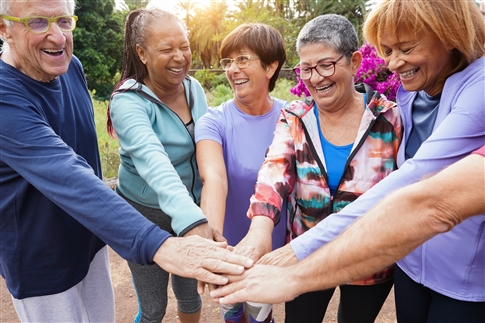
September is National Preparedness Month and this year, the theme for FEMA’s Ready Campaign is “Take Control in 1, 2, 3,”. The campaign focuses on preparing older adults for disasters and all-hazard events.
We know older adults can face greater risks when it comes to the extreme weather events and emergencies we face, especially if they are living alone, are low-income, have a disability, depend on electricity for medical needs, or live in rural areas.
It’s important for older adults, especially those who rely on electricity for medical and mobility needs, to be prepared for a power outage.
Emergency preparedness tips for older adults:
1. Plan how you will communicate if you have a communication need
- Create a list of emergency contacts, including family members and care providers to assist you if needed during an emergency.
- Keep a charged portable power bank phone charger in your emergency kit in case of a power outage.
Help an older adult -
Make a physical copy of an emergency plan for their home, including emergency contact information (family members/caregivers), household information (address/phone number), emergency plans (what to do if…), emergency meeting places, and medical information.
2. Plan for food, water, and essentials for you and pets or service animals. Research pet-friendly evacuation centers.
- Following a disaster, there may be power outages that could last for several days. Store at least a several-day supply of canned foods, dry mixes and other staples that do not require refrigeration, cooking, water or special preparation.
- Be sure to have a manual can opener and eating utensils.
- During a power outage, discard any perishable food such as meat, poultry, fish, eggs, or leftovers that have been above 40 degrees Fahrenheit for two hours or more.
Help an older adult -
Purchase a refrigerator thermometer that they can easily read to check the temperature in the fridge during a power outage. Refrigerated or frozen foods should be kept at 40 degrees Fahrenheit or below for proper food storage.
3. Plan for your transportation if you need help evacuating.
- Plan and prepare your transportation options in case you need to move to a clinic or hospital for care and assistance during the emergency.
- Communicate with neighbors who can assist you if you need to evacuate the building.
- Show others how to assemble, disassemble and operate your wheelchair.
- Purchase an extra battery for a power wheelchair or other battery-operated medical or assistive technology devices. If you can't purchase an extra battery, find out what agencies, organizations or local charitable groups can help you buy one. Keep extra batteries charged at all times.
- Keep an extra mobility device such as a cane or walker if you use one.
- Keep a portable air pump for wheelchair tires.
4. Include items that meet your individual needs, such as medicines, medical supplies, batteries and chargers, in your emergency supply kit.
Medications:
-
- Talk to your doctor or pharmacist about how you can create an emergency supply of medicines.
- Keep a list of your prescription medicines. Include information about your diagnosis, dosage, frequency, medical supply needs and allergies.
- Store extra nonprescription drugs, like pain and fever relievers, antihistamines and antidiarrheal medicines.
- Have a cooler and chemical ice packs available to chill medicines that need to be refrigerated.
Individuals with Alzheimer’s and Related Dementia:
-
- Do not leave the person alone. Even those who aren’t prone to wandering away may do so in unfamiliar environments or situations.
- If evacuating, help manage the change in environment by bringing a pillow and blanket or other comforting items they can hold onto.
- When at a shelter, try to stay away from exits and choose a quiet corner.
- If there is an episode of agitation, respond to the emotions being expressed. For example, say “You’re frightened and want to go home. It’s ok. I’m right here with you.”
Individuals with Intellectual or Developmental Disabilities:
-
- Keep handheld electronic devices charged and loaded with videos and activities.
- Purchase spare chargers for electronic devices and keep them charged.
- Include sheets and twine or a small pop-up tent (to decrease visual stimulation in a busy room or to provide instant privacy).
- Consider a pair of noise-canceling headphones to decrease auditory stimuli.
- Have comfort snacks available.
Additional Items:
-
- Several days supply of prescription medicines
- A list of all medications, dosage and any allergies
- Extra eyeglasses, contacts, hearing aids and batteries
- A backup supply of oxygen
- A list of the style and serial number of medical devices (include special instructions for operating your equipment if needed)
- Copies of insurance and Medicare cards
- Contact information for doctors, relatives or friends who should be notified if you are hurt
- Pet food, extra water, collar with ID tag, medical records and other supplies for your service or support animal
Help an older adult -
Access and research emergency preparedness information on the internet. Take them on a shopping trip to restock their emergency preparedness kit.
5. Make copies of Medicaid, Medicare, and other insurance cards.
Help an older adult -
Copy and print out important medical information to keep in their emergency kit.
6. Create a personal support network
- If you anticipate needing assistance during a disaster, make a list of family, friends and others who will be part of your plan. Talk to these people and ask them to be part of your support network.
- Share each aspect of your emergency plan with everyone in your group, including a friend or relative in another area who would not be impacted by the same emergency who can help if necessary.
- Make sure everyone knows how you plan to evacuate your home or workplace and where you will go in case of a disaster.
- Make sure that someone in your personal support network has an extra key to your home and knows where you keep your emergency supplies.
- Practice your plan with those who have agreed to be part of your personal support network.
Help an older adult -
By being a part of their personal support network.
PSPS Enhanced Support Program
Do you or a loved one rely on electricity to keep medications cold or to use life-sustaining medical equipment or mobility devices? If so, it’s important to have an emergency plan in place for a planned or unexpected power outage.
We know that no one likes to lose power, and power outages during the heat of summer and wildfire season can create a different set of challenges for residents. This is especially true for customers who rely on electricity for medications, medical equipment, and mobility devices. That’s why we’re offering enhanced support for customers who may need additional assistance during a summer outage, such as a Public Safety Power Shutoff or PSPS.
Sign up for EWEB’s PSPS Enhanced Support Program so we know who you are and can support you with:
- Direct phone call notification 24-48 hours ahead of a Public Safety Power Shutoff (PSPS).
- Coordination and information sharing with helping agencies and emergency services for critical unmet needs
Who’s eligible for this program?
- Customers who reside within EWEB’s High-Risk Fire Zone territory (or caregiver/guardian of someone who resides within the high-risk territory)
- Customers with medical equipment or a medical need for electricity (such as a fridge for insulin)
- Customers who have serious health conditions and/or limited mobility.
Related Programs
Here are some of the ways we work proactively to keep the lights on and the tap water flowing.
We offer financing options for customers to purchase a backup power system.
You can significantly reduce damage to your home by fixing a number of known and common weaknesses. This FEMA booklet is a good start to begin strengthening your home against earthquake damage.

